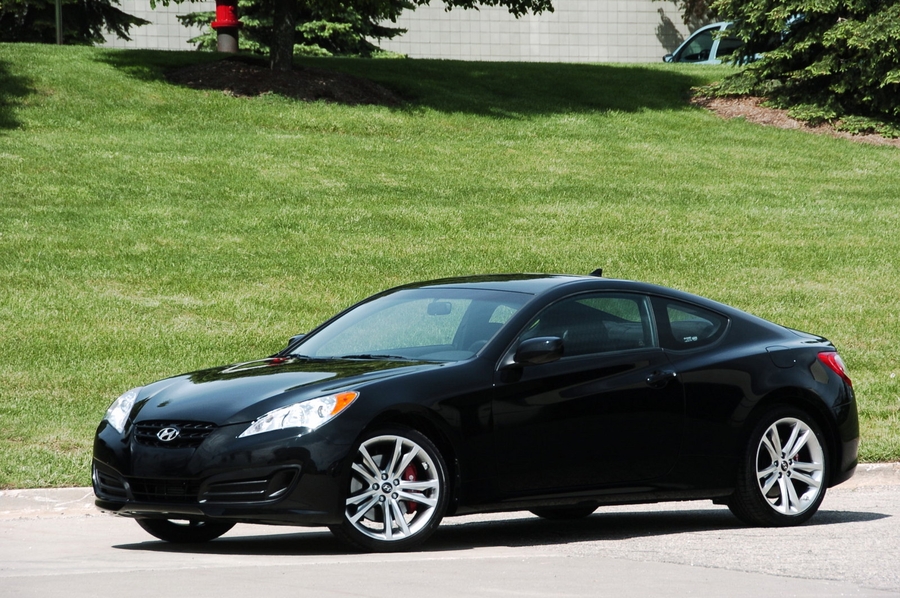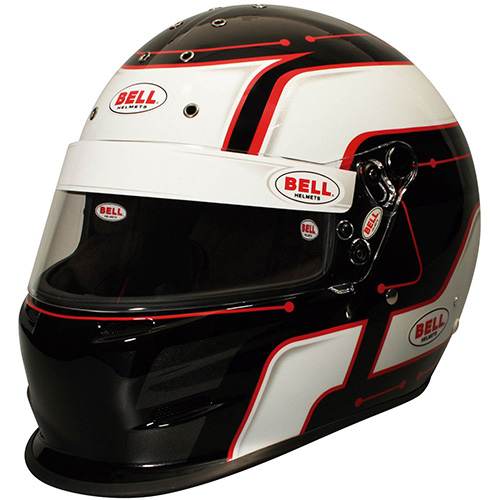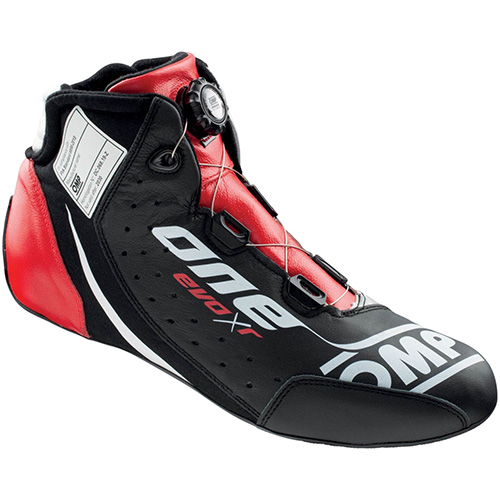Driven: 2010 Hyundai Genesis Coupe R-Spec

—Ann Arbor, Michigan
We were excited when Hyundai dropped the Genesis Coupe on the public. The brand has been shaking things up in the automotive world, and the thought of a Korean, rear-drive sports coupe sounded particularly sweet. After driving the Coupe, we quickly came to really appreciate it, and when Hyundai finally released the Hyundai Genesis Coupe R-Spec, we couldn’t wait to get behind the wheel, and we were sure there were oodles of tuners and budget racers that shared the sentiment.
So what’s different about the R-Spec? It adds bigger Brembo brakes, Torsen limited-slip differential, nineteen-inch alloys wrapped in performance rubber, and front-camber adjustment bolts. Most importantly, the R-Spec gets a track-tuned suspension, which includes stiffer springs and shocks, front and rear stabilizer bars, and a front strut brace. Of course, Hyundai slapped on a little R-Spec badge on the butt, which is nicely understated in a cool, yet classy way.
But what’s perhaps more crucial to the R-Spec package is not what was added, but rather what was deleted. The tuner-ready Genesis coupe does without automatic headlights, cruise control, trip meter, steering wheel audio controls, Bluetooth, and chrome interior accents. This amounts to a little bit in weight savings, as well as a way to keep the cost low ($3000 less than the 2.0T Track). And yes, the R-Spec is only available with the six-speed, do-it-yourself gearbox.
Upon taking lease of the R-Spec, it had been a while since we at Winding Road had driven the Genesis Coupe. Any weight savings from the stripping of the unnecessary elements previously mentioned were, therefore, lost on us more or less. The suspension upgrades, on the other hand, were immediately apparent. The ride is much stiffer, bumpier, louder. We were able to feel every imperfection in the road surface (which are abundant in our neck of the woods). Changes in the pavement are directly communicated to the driver physically and audibly. At first, it seemed a bit uncomfortable and harsh.
Given a little more time with it, though, we grew accustomed to it, and came to appreciate the sport-tuned suspension. When it comes to flogging a rear-wheel drive coupe across uneven, and sometimes wet, pavement, feeling exactly what is going on underneath you is a huge confidence booster. Not dissimilar to the suspension settings of the Mitsubishi Evo, the rough ride had a positive effect on the overall experience. And, on a track, where the R-Spec is most at home, things like potholes and undulations are less of a problem, and every bit of communication through the chassis can only be an asset for performance. A bit more bolstering would have done well, though, to keep us firmly snug in our seat.
Besides that, the R-Spec is pretty much the same 2.0T Track with which we are already familiar. And we were glad to revisit it.
The turbocharged 2.0-liter four has been left untouched. Its 210 horsepower and 223 pound-feet of torque, directed to the rear wheels, provides plenty of get-up-and-go, with just a little left over for a bit of shenanigans. Power is there when you need it in every gear, making passing maneuvers a breeze. And while it never sounds asthmatic, the engine can be a bit droney when held toward the higher revs. It’s true, the engine note of the 2.0T doesn’t really get our hearts pumping, regardless of how capable the powerplant might be. But that’s really a tiny complaint, and one that tuners can happily remedy.
During launches, we seemed to feel a bit of turbo lag, and the early bit of acceleration felt hesitant. The traction control light caught our eye, though, as it flashed with every fast start. After poking the button and trying again, the hesitation was gone. It seems the electronic nannies were limiting power at the first sign of loss of grip. Without them, the 2.0T was much more free to build power, and the loss of traction wasn’t as big of a problem as it would have been in a more powerful vehicle. This way, we were able to control the throttle ourselves to mitigate wheelspin and build power for quicker starts. Fun ensued, and our faith was restored.
With that problem solved, our only real remaining concern truly relating to drivability was the six-speed manual. It feels clunky in hand. It lacks the crispness and confidence of Mazda and Honda boxes. In the R-Spec, we could hear and feel the transmission through the chassis when we changed gears, with placement of the shifter being met with a thunk from within the vehicle. Even in a tuner car, a bit more operational smoothness direct from the factory would go a long way, we think.
So, tuners, Hyundai Genesis Coupe R-Spec is your ball of clay. The brakes have already been taken care of. So have the wheels and tires. With the new suspension settings, the R-Spec is ready for the track. Hyundai even saw fit to leave a few ducats in your pocket to get you started. Now its up to you to tinker, wrench, build, and refine the Genesis Coupe into whatever sort of monster you see fit. So, where to start?
ATP Turbo offers bolt-on Garrett turbochargers for the 2.0T, starting at around $1500. That can put you over 300 horsepower, while decreasing turbo lag. From there, you can add a high-flow air intake for around $200. Exhaust from Megan Racing, available through GenRacer, further improves your power-to-weight ratio for under $400, and that includes the aesthetic touch of four burnt exhaust tips. There, you can also find a whole host of other mods, including ECU tuning.
There’s something that we find incredibly sexy about a sleeper, but if you would rather stand out, there are numerous ways to do so. E&G Classics offers an ominously clean full aero kit for the Genesis Coupe. The list goes on, for as with any tuner-friendly vehicle with a turbocharged engine, there are countless other modifications available on the market, whether in appearance or performance, if you just do a little digging.
Of course, if you want to improve on an already good thing, aftermarket suspension upgrades abound. And, may we suggest some Sparco racing seats? You’re definitely going to want some extra support when you start flogging your modded Genny around your local track or along your favorite twisty roads.
2010 Hyundai Genesis Coupe R-Spec
Engine: Turbocharged inline-four, 2.0 liters, 16v
Output: 210 hp/223 lb-ft
Top Speed: 137 mph
Fuel Economy, City/Hwy: 21/30 mpg
Base Price: $23,750
On Sale: Now


















